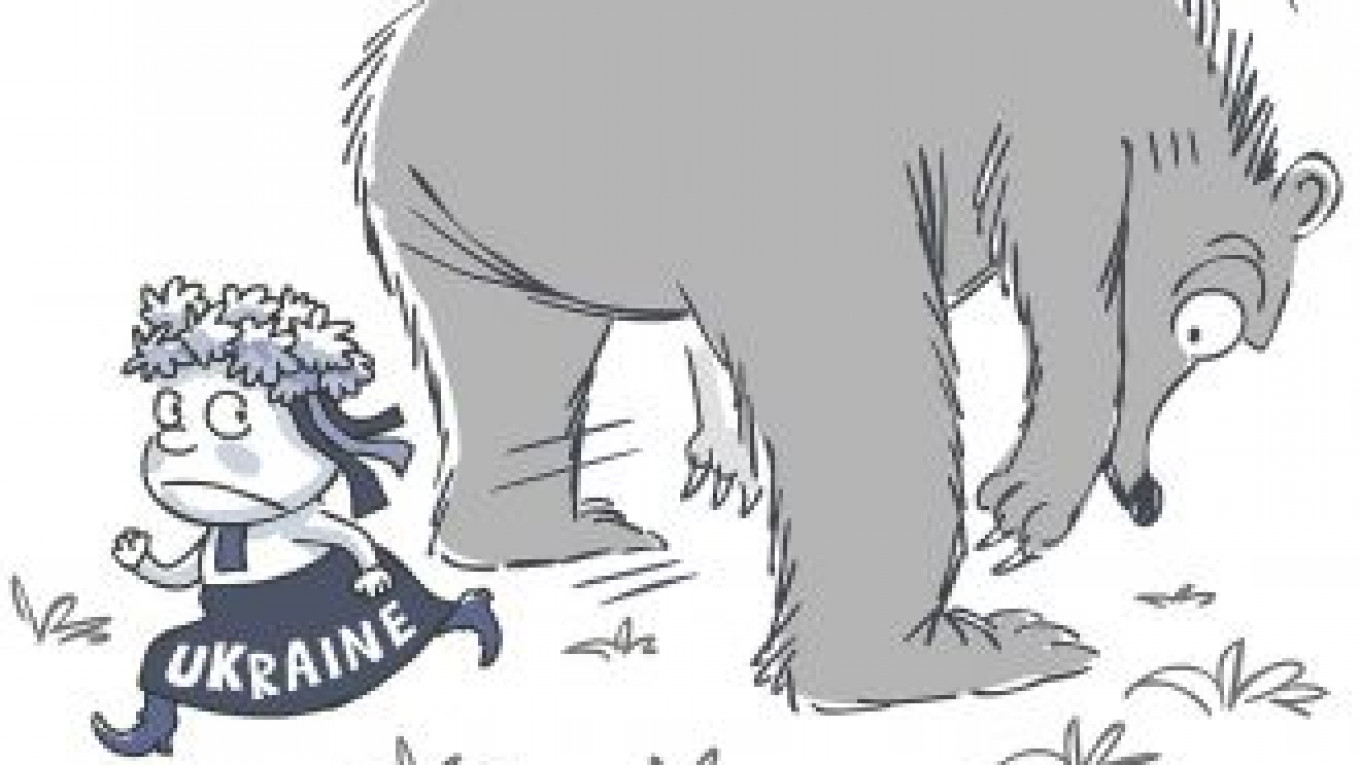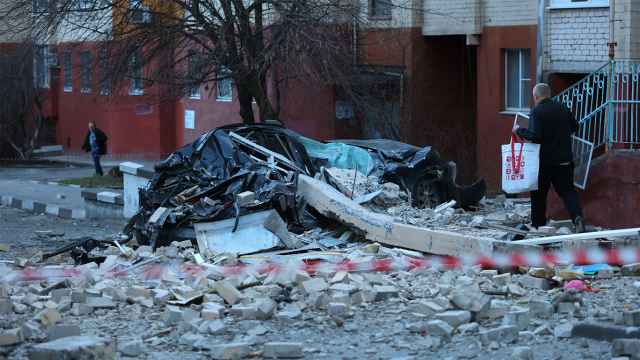Russia's leaders view the Association Agreement with the European Union that Ukraine and five other former Soviet republics recently signed in Vilnius as a major defeat in this longstanding geopolitical standoff. Moscow is so angry that it is threatening to unleash a trade war with Ukraine and punish Lithuania for pandering to the "treacherous" behavior of the former Soviet republics.
Russia finds it particularly offensive that Kiev's drift toward Europe is occurring under Ukrainian President Viktor Yanukovych, whom Moscow initially hailed as pro-Russian. Moscow thought that after it managed to sign an agreement to rent the Sevastopol naval base for the Black Sea Fleet for the next 10 years, it would be just as easy to bring Ukraine into the Customs Union.
Even the Kremlin's most generous trade perks can't keep Kiev from choosing Europe over Russia.
But that proved impossible. Ukraine is committed to long-term integration with the EU, leading eventually to membership. Kiev saw no advantage in joining a customs union with Russia, Belarus and Kazakhstan. Kiev was not even tempted by the offer that if it entered the Customs Union with Russia, it would receive a 50 percent discount on gas imports and receive preferential customs rates on its machinery exports to Russia. These two trade preferences alone would have amounted to a savings of $10 billion annually. Instead, Ukraine plans to reduce its energy dependence on Russia by working with other natural gas suppliers.
Kiev's "European project" has already become a compelling national idea that finds support among most Ukrainians. Toward this end, Yanukovych has even agreed to free his main political rival, former Ukrainian Prime Minister Yulia Tymoshenko, from jail and allow her to seek medical treatment in Germany. She was imprisoned for "abuse of power" in connection with signing Ukraine's "unfavorable" gas agreement with Moscow while Putin was prime minister. But Moscow was unable, or apparently unwilling, to pressure Yanukovych to release Tymoshenko. Such impotence, or indifference, might have been just another reason pushing Ukrainian public opinion away from Russia and toward the EU.
According to recent opinion polls, 53 percent of Ukrainians support accession to the EU while only 35 percent do not. Also, 47 percent believe that the free trade agreement with Europe will be more favorable, while 34 percent would prefer entering the Customs Union that Russia has proposed. Even the voters in eastern Ukraine, who are traditionally pro-Russia and comprise Yanukovych's electoral base, are almost evenly split on the question of EU accession, with 45 percent opposed and 42 percent in favor. As for the idea of combining Russia, Ukraine and Belarus into a single state, only 38 percent of Ukrainians support it, while 50 percent are opposed. These figures show how much Russia has lost the battle over Ukrainian public opinion.
Even 22 years after the Soviet collapse, Russia's ruling elite still cannot resign itself to the fact that Ukraine is a separate and independent state whose interests differ from Russia's. Together with this, Russia has yet to put its own social and economic house in order in a way that could compete with the EU, even with all of its current problems.
When Russian politicians proudly proclaim that Russia is not Europe and that it has a special path to follow, it is perceived by many Ukrainians as an excuse for Russia's inability to establish the rule of law, its lack of protections for civil and property rights and its lack of European-style democracy. Even $10 billion in trade perks cannot induce Ukraine to follow Russia down that type of "special path."
Georgy Bovt is a political analyst.







